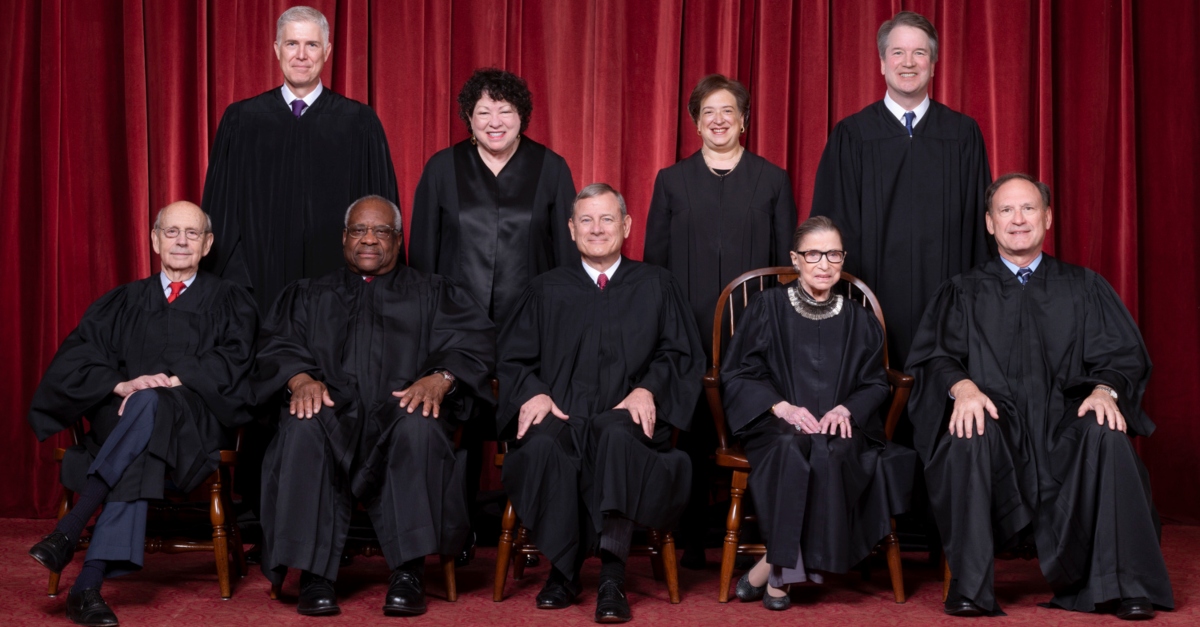
The Supreme Court of the United States heard telephonic oral arguments in the “Faithless Elector” cases on Wednesday, and the justices didn’t seem too keen on the idea of revamping the electoral college.
Chiafalo v. Washington was heard consecutively with Colorado Department of State v. Baca, each case asking whether individual electors have the right to cast votes for someone other than their pledged candidate who won the most votes in their respective states. The cases raise not only the issue of electors’ functions under the Constitution, but also the right of individual states to regulate those electors.
For more background on the cases, see here and here.
The Court seemed skeptical of Lawrence Lessig’s (the attorney for elector Peter Chiafalo) argument that electors should be free to exercise their own discretion in voting for a presidential candidate. Several of the justices immediately brought up the possibility of bribery: What if an elector was bribed to cast a vote for someone other than the popular winner? Over and over again during the two hours of arguments, various justices raised the specter of bribery: if an elector has discretion, that elector could be bought. Not a good sign for electors hoping to win their right to vote their consciences.
Justice Elena Kagan also made short work of the argument that the Constitution’s use of the word “vote,” with regard to electors, inherently implies a right to individual discretion. “Of course, we usually think ‘voting’ allows for some choice, but not necessarily,” the justice warned.
Justice Neil Gorsuch threw Lessig a hypothetical meant to illustrate that states already do have at least some power to control their electors. “Could a state, for example, ask an elector to make a sworn statement as to his present intention to vote for a candidate?” asked Gorsuch. “Could the state later prosecute for perjury if there is evidence it was a false statement?”
Lessig’s pointed response hit particularly close to home—and probably wasn’t what any of the justices were expecting to hear. Lessig agreed that in theory, a state could do exactly what Gorsuch suggested. “In practice,” Lessig qualified, “that would be just like with a judge making a promise to a Senate committee prior to a conformation. It would be incredibly difficult to imagine enforcing in a way that wouldn’t be just retaliatory.” Ouch. I bet none of the justices would expect to be prosecuted for failing to rule the way they promised to during their own hearings.
Chief Justice John Roberts did his level best to corner Baca’s attorney, Jason Harrow, into admitting he believes electors’ discretion to be limitless. Courts are never big fans of unfettered discretion in any context, so the question was something of a setup. Harrow responded that the are no legally-mandated limits so long as an elector casts a ballot for a “person” (referring to a historical case in which Congress rejected electors’ votes for a deceased candidate). “Not a giraffe?” Roberts attempted to quip incredulously. We’re months into quarantine, so I guess we can give him a break on that one.
The now-loquacious-in-phone-hearings Justice Clarence Thomas jumped in to offer the following weird hypothetical: “[what if] an elector that had promised to vote for winning candidate can suddenly say ‘you know I’m going to vote for Frodo Baggins’?” Colorado Attorney General Philip Weiser picked up on the Tolkien reference in his closing remarks, saying that the electors have failed to give the Court, “any viable theory on how to address the spectacle of a bribed elector, an elector who votes for Frodo Baggins, or one who would who perpetrates a bait and switch on the people of the state.”
However skeptical the justices were to the electors’ underlying arguments, though, there seemed to be a concerted effort to bring up reasons why SCOTUS shouldn’t be deciding this case in the first place.
Justice Brett Kavanaugh reminded everyone that it might be a bad idea for SCOTUS to entrench itself in these cases on the basis of the “avoid chaos” principle of judging: if it’s a close call, the court shouldn’t facilitate chaos. Chaos isn’t the only problem, either.
Several times throughout both the arguments, Justices Clarence Thomas and Ruth Bader Ginsburg raised the issue of standing–the principle that a party must have suffered actual harm in order to have the right to ask for judicial intervention. Micheal Baca is suing for just $1 in damages – and while there is an argument that he faces stigma or political fallout from being stripped of his right to elect, the justices appeared skeptical at best.
Justice Stephen Breyer also appeared pretty reluctant to decide the cases on their merits. Time and again, he raised the question of 42 U.S.C. § 1983. That’s the law on which Baca based his claim against the State of Colorado. Problematically, § 1983 doesn’t allow states as defendants to count as “people” for purposes of such claims. Colorado didn’t raise that defense in its argument – because both parties agreed to move forward with the case. But Justice Breyer wasn’t buying that the Court is obligated to rule on the case just because both parties want it to.
Justice Sonia Sotomayor made headlines for other reasons.
The issue of so-called faithless electing isn’t one that falls along the usual liberal-conservative lines, and the justices have an abundance of roads to pursue in their ultimate decision. I’m guessing we’ll see a bunch of concurrences, particularly on the threshold issues of jurisdiction and standing — and that the electoral college will live to be criticized another day.
[image via Fred Schilling, Supreme Court Curator’s Office]
This is an opinion piece. The views expressed in this article are those of just the author.